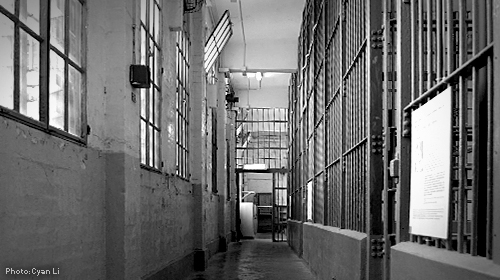
On Wednesday, news broke that and searching for a new company to run the state's biggest prison. The prison is that prisoners call it the "Gladiator School," and it has been the subject of both an ¿œ∞ƒ√≈ø™Ω±Ω·π˚ lawsuit and an Idaho State Police investigation. And earlier this year, CCA admitted that its employees had at the prison over a seven-month period, billing the state for security posts that they actually left unfilled.
Idaho's decision to end the Gladiator School contract with CCA will make it the fourth termination of a CCA prison contract that the company has announced this month.
The week before the Gladiator School announcement, the Texas Department of Criminal Justice announced that it would be for budgetary reasons. (One of the two prisons, the Dawson State Jail, was the site of multiple high-profile , including a baby girl who was allegedly after staff ignored her mother's requests for medical assistance.)
The same week, CCA that the Mississippi Department of Corrections decided not to renew CCA's contract to run the state's Wilkinson County Correctional Facility. Earlier this year, a prisoner was at Wilkinson – which was the at Wilkinson and the during the same time period.
The grisly records of these CCA prisons exemplify why handing control of prisons over to for-profit companies is a recipe for abuse, neglect, and misconduct. A study conducted by the Idaho Department of Corrections in 2008 found that there were four times more prisoner-on-prisoner assaults at ICC than at Idaho's other seven prisons combined. As detailed in the ¿œ∞ƒ√≈ø™Ω±Ω·π˚'s 2011 report, Banking on Bondage, several studies suggest that prisoners in for-profit prisons face greater threats to their safety than those in publicly-run prisons ‚Äì a possible reflection of the higher staff turnover in private prisons, which can result in inexperienced guards walking the tiers. Additionally, numerous religious groups ‚Äì including the , the , and the ‚Äì have condemned the perverse incentives involved in for-profit incarceration, often emphasizing the inherent conflict between the goal of rehabilitation and the company's profit motive.
One worrisome aspect of the Idaho and Mississippi contract terminations, however, is that these prisons aren't actually being returned to state hands. In Idaho, Board of Corrections Chairperson Robin Sandy that the state won't be allowed to take over the Gladiator School because that would amount to "expanding" state government. And in Mississippi, the state ‚Äì the same company that runs East Mississippi Correctional Facility (the subject of a new prison conditions lawsuit filed just last month by the ¿œ∞ƒ√≈ø™Ω±Ω·π˚ and Southern Poverty Law Center) and the Walnut Grove Correctional Facility (which was recently found to have the of any prison in Mississippi).
Rather than repeatedly handing off authority to a revolving door of contractors, states need to both take responsibility for their own prisons and reduce the number of people entering the criminal justice system in the first place. Only then can they unshackle themselves from the false promise of for-profit imprisonment.
Learn more about private prisons and other civil liberty issues: Sign up for breaking news alerts, , and .
